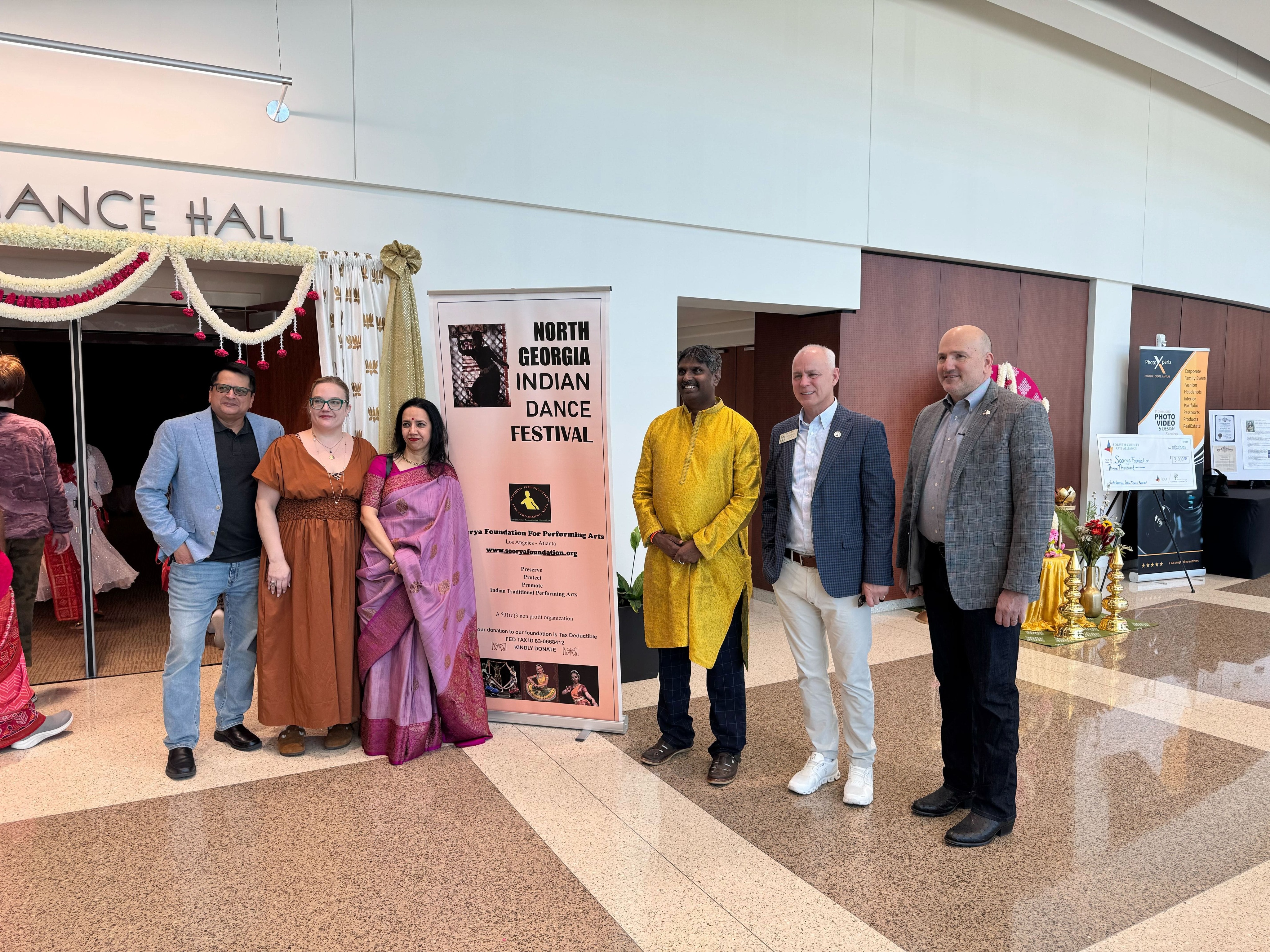Sunday Morning With Nio's Ganesh Iyer
“Before you finish your Starbucks latte or whatever you drink, your electric vehicle battery is swapped via robot in less than four minutes. How cool is that?”
SAN JOSE, California — Ganesh Iyer, the US CEO of the China-based electric vehicle manufacturer Nio, has a new vision for the car ownership experience.
“Our mission is to shape what I call a joyful lifestyle,” said Iyer, in an interview with New India Abroad, shortly before launching a new office in San Jose.
Founded in Shanghai, China in 2014 by William Li, Nio is based on three models: the self-driving — autonomous — electric vehicle; battery swapping stations; and “battery as a service.” Iyer says Nio is set to revolutionize the electric vehicle industry in the US, when it begins selling here in 2025.
The company entered the European market in September, 2021, and now sells cars in Norway, Germany, Netherlands, Sweden, and Denmark.
Excerpts from the interview:
NIA: how does Nio differ from the electric vehicles that are currently on the market?
Ganesh Iyer: Great question. The automotive industry is definitely on the cusp of a profound change, not just on the products and technology side alone, but also the change of user experiences and the innovation of the products itself.
Nio's vision is fundamentally different almost all of the other manufacturers, including some of the prominent ones in the United States, as well as in Europe. We hope to give a new definition of a car ownership experience.
People know Nio through our leading battery swapping technologies. And that enabled us to create a new business model called “Battery as a Service,” as well as our proprietary autonomous driving technologies.
What is battery swapping?
Even the fast chargers out there still take roughly about 20 to 30 minutes to get about 80 % state of charge. That's a lot of time, right? If you are a top-notch doctor or a lawyer, your value of time is so critical and important: 30 minutes can translate into $400 or even more, depending on who you are.
For a battery swap, your car comes in to a station. And then from your instrument cluster inside your car, you just push a button; you don't even have to get out of the car. The car will reverse box itself autonomously into the swap station.
Everything is done magically by the robotic systems. The robot comes out from the swap station and then it unscrews the battery from the bottom of your new vehicle and put that into a empty slot and takes a fully charged battery, put that back into the car, screws it up. And then after that, it does a validation. When the headlight blinks, the car wakes up, and off you go!
Essentially you are getting a safe, secured battery in less than four minutes. It is faster than filling up your gas tank in a gas station.
We have done over 28 million successful swaps. So that means the technology is proven.
1800 Nio power swap stations have been deployed in China, and 26 have been deployed in Europe.
So you plan to bring the Nio to the US market by 2025. Do you anticipate challenges, given our currently very fraught relationship with China?
You know, that's a sensitive question. All the world leaders have made the commitment to solve climate change issues and electric vehicles are part of that.
COVID disrupted the entire world. But the negative impact of global warming could be much worse to the humanity as a whole. So to me, innovation has no boundaries. It can come — and has to come — from everywhere around the world.
Is there a market for Nio in India?
There's a market for Nio everywhere. Because every leader, every political leader, country leader has pledged that by 2030, 2035 or 2040, no new car sold will be on internal combustion. It has to be on electric, right? So there is this vision, this commitment.
Innovation needs to be accessible to every single person in every part of the world. I would like to see that.




.jpg)
.png)

.webp)
.png)



.jpg)




Comments
Start the conversation
Become a member of New India Abroad to start commenting.
Sign Up Now
Already have an account? Login